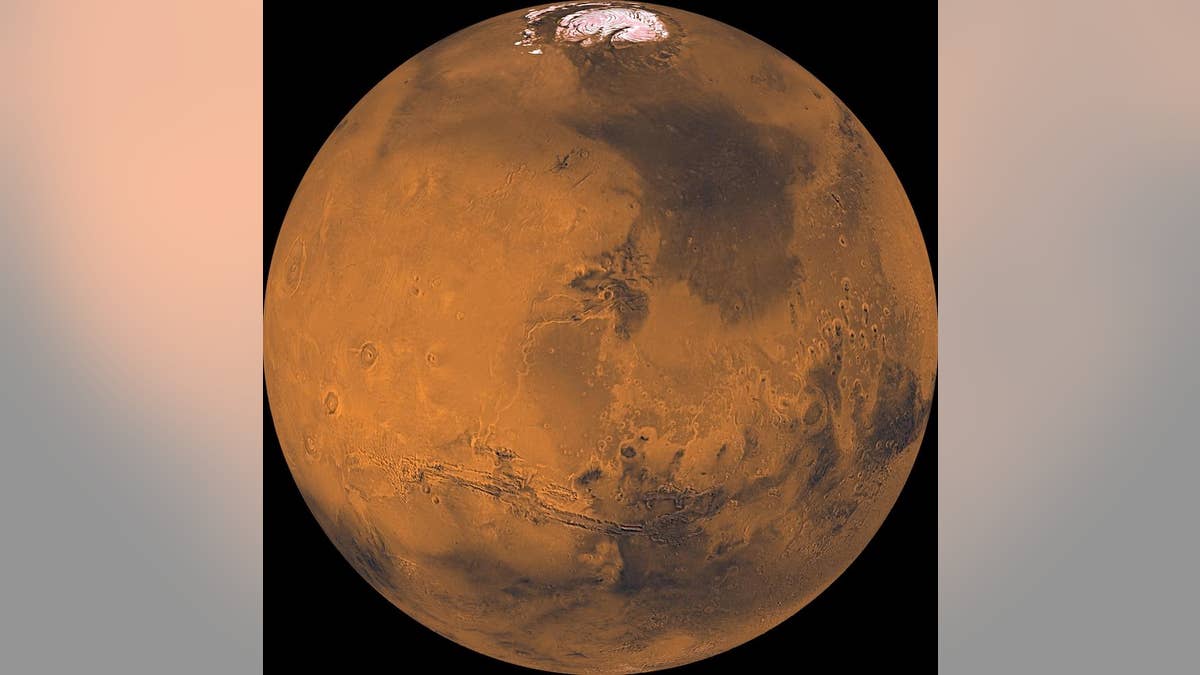
Mars, as seen in the 1970s by NASA's Viking 1 orbiter. (NASA/JPL)
Scientists will gather today to debate where NASA should next land on Mars, as the American space agency prepares a new mission in its search for life on the Red Planet.
The debate comes as NASA is being urged by the National Academy of Sciences to make the search for extraterrestrial life a core part of its strategy.
Around 300 scientists will make the trip to the fourth and final Mars 2020 workshop in Los Angeles, where NASA will seek opinion from the scientific community on where to land its new Mars rover in three years' time.
"The Mars 2020 landing site could set the stage for Mars exploration for the next decade,” explained Thomas Zurbuchen, an associate administrator at NASA's Science Mission Directorate.
Having started from a pool of 30 possible landing sites in 2014, the shortlist is now down to four candidates, which will be assessed according to their potential for providing signs of habitable conditions on Mars and of past microscopic life.
And once all the presentations and discussions have been concluded, formal recommendations will be sent to NASA, which will reach its decision on the landing site by the end of the year.
The Mars 2020 rover will launch on an Atlas V rocket in July 2020, and it's expected to touch down on Mars in February 2021.
The choice of its landing site is a hugely important one, since NASA has no other rover mission currently planned to succeed it.
But once safely on the surface of Mars, it will carry out geological tests and assess how habitable the planet environment is and was.
It will also look for traces of alien life, just as NASA's Curiosity rover has done since landing on the planet in August 2012.
Searching alien life is something which a growing number of groups believe NASA should be doing more regularly.
For example, the National Academy of Sciences (NAS) released a report last week that calls for NASA to make the search for extraterrestrial life an "integral part of its missions."
The report urges NASA to develop more technologies capable of detecting alien life, and update its operations according to new advances in the field of astrobiology.
Astrobiology is the study of the origins and development of life in the universe, and it's useful in detecting and understanding life that isn't similar to what we encounter on Earth.
And it seems that NASA is paying attention to such calls, since in September it reported on how it's expanding its search for extraterrestrial life.
It detailed how it's now actively looking for 'technosignatures,' signs that technologies are being used elsewhere in the universe.
This story originally appeared in The Sun.




















